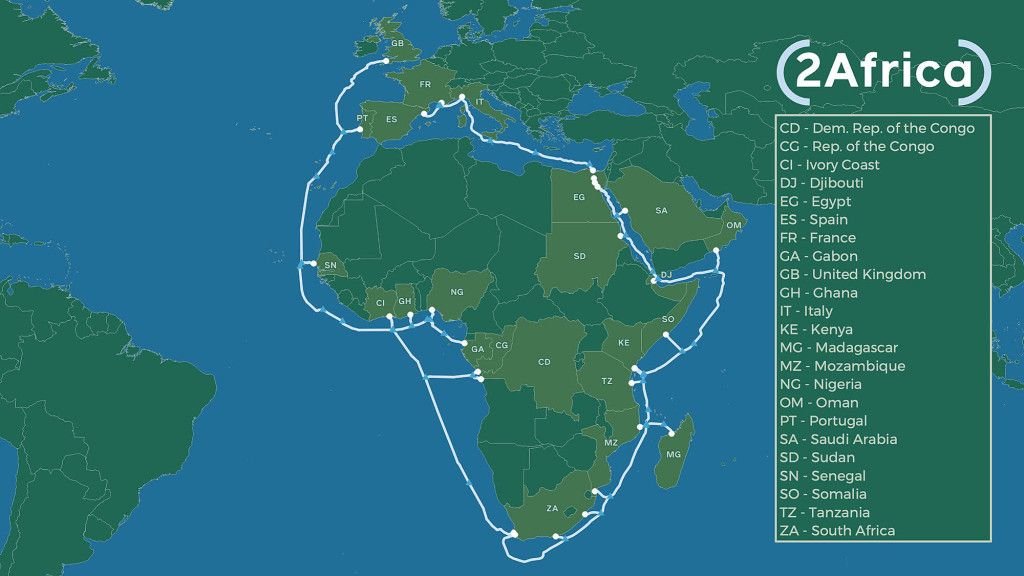- The comparison
- Mobile
- Facebook's New Submarine Web Cable Will Nearly Triple Africa's Internet Capacity


Facebook is building a colossal undersea web cable that will nearly triple Africa's internet capacity, the firm said. Built in partnership with a variety of global telecommunications companies, including China Mobile, MTN, Orange and Vodafone, the 2Africa cable will cover 37,000 kilometers around the continent's perimeter. When complete, the submarine cable will be among the longest of its kind, nearly equal in length to the circumference of the world, linking 23 countries in Africa, the Middle East and Europe. With only a quarter of Africans currently connected to the Internet, the new undersea web cable will provide the necessary capacity, redundancy and reliability.
2 Africa submarine web cable
The 2Africa project is part of Facebook's broader ambition to build an "open and inclusive internet ecosystem" and "bring people online to a faster internet," according to a recent blog. As the first submarine cable network linking the east and west coasts of Africa, the project is expected to unlock a multitude of new connection routes. The company is also building a new crossing between the Red Sea and the Mediterranean, the first of its kind in a decade. According to Facebook, the use of new and advanced technologies will increase the efficiency of the cable and ensure maximum availability. "It is the first system of its size to use an innovative aluminum conductor for submarine cable systems," the firm said. "In addition, we have doubled the maximum number of eight fiber pairs supported by older technology for a much more resource efficient fiber optic cable by implementing Space Division Multiplexing (SDM1) technology...with up to 16 pairs of fibers, 2Africa will enable much higher capacity." The project was also expressly developed to reduce the limits of submarine cable networks. For example, damage to fiber optic cables, often caused by passing ships or harsh deep-sea conditions, occurs more than 100 times a year, in some cases causing nationwide breakdowns. To ensure maximum redundancy and availability, the 2Africa cable has been designed to allow for a 50% increase in burial depth (now up to 3 metres) and will be routed to avoid the most problematic underwater locations, which should limit the possibility of breakups. The project comes at an opportune time, according to Facebook, with the ongoing pandemic serving to highlight the crucial importance of connecting with businesses and societies. “The current Covid-19 pandemic has highlighted the importance of connectivity, as billions of people around the world depend on the Internet to work, study and stay in touch with loved ones. Facebook said. "2 Africa will not only be an important element in advancing connectivity infrastructure across the African continent, but also a major investment that comes at a crucial time for economic recovery."

